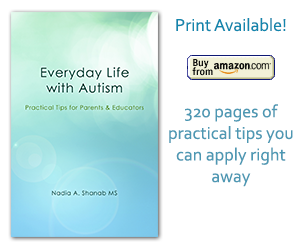Premature Babies Are At Higher Risk For Autism
Nadia Shanab | autism, general advice, parenting, tips8 Jul 2015

A recent research showed that premature babies have a different developmental behavior in their infancy than babies who reached their full term. Premature babies are at higher risk for autism, because their diagnosis comes at an older age.
Explanation
“The researchers were surprised to find that many of the babies who had averted their gazes and showed signs of nystagmus (horizontal repetitive eye movement) as infants did not display warning signs of autism at age two.”
Babies can be screened for autism between 2 and 6 months. Around the age of 2 years a diagnostic testing for autism is possible. What the researchers found was surprising for preemies (premature babies). Some do show some signs of autism around 2 1/2 months, like avoiding eye contact, then later on around the age of two, they don’t anymore.
Needless to repeat that early intervention makes all the difference. Rates of success are much higher when autism is caught early on. There is no cure for autism as these words are written now, but your child can be placed on the higher end of the spectrum if she/he is diagnosed early enough. When intervention starts early and the right services and therapies are provided, your low-functioning child can become higher-functioning, and may even become independent as an adult.
Tip
For parents of a premature baby: keep an eye on your child’s infancy development. If you notice unusual behaviors, consult with licensed professionals with no delay. Preemies require more attention in this regard.
Here are some signs of autism.
Source: EPOCH TIMES
nadia shanab
Tags: asperger's syndrome, autism, diagnosis, early intervention, eye contact, health, horizontal repetitive eye movement, independence, nystagmus, occupational therapy, parenting, placement, preemies, premature babies, research, signs of autism, social interaction, tips
